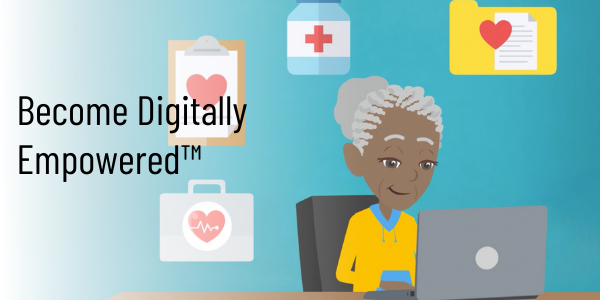What You Need to Know Before Choosing a Cancer Treatment from Patient Empowerment Network on Vimeo.
Download Guide
Haga clic aquí para ver en español
What steps could help you and your doctor decide on the best treatment path for your specific cancer? This animated video explains how identification of unique features of a specific cancer through biomarker testing could impact prognosis, treatment decisions and enable patients to get the best, most personalized cancer care.
If you are viewing this from outside of the US, please be aware that availability of personalized care and therapy may differ in each country. Please consult with your local healthcare provider for more information.
Related Programs:
TRANSCRIPT:
Dr. Jones:
Hi! I’m Dr. Jones and I’m an oncologist and researcher. I specialize in the care and treatment of patients with cancer.
Today we’re going to talk about the steps to accessing personalized care and the best therapy for YOUR specific cancer. And that begins with something called biomarker testing.
Before we start, I want to remind you that this video is intended to help educate cancer patients and their loved ones and shouldn’t be a replacement for advice from your doctor.
Let’s start with the basics–just like no two fingerprints are exactly alike, no two patients’ cancers are exactly the same. For instance, let’s meet Louis and another patient of mine, Ben. They both have the same type of cancer and were diagnosed around the same time–but when looked at up close, their cancers look very different. And, therefore, should be treated differently.
We can look more closely at the cancer type using biomarker testing, which checks for specific gene mutations, proteins, chromosomal abnormalities and/or other molecular changes that are unique to an individual’s disease.
Sometimes called molecular testing or genomic testing, biomarker testing can be administered in a number of ways, such as via a blood test or biopsy. The way testing is administered will depend on YOUR specific situation.
The results could help your healthcare team understand how your cancer may behave and to help plan treatment. And, it may indicate whether targeted therapy might be right for you. When deciding whether biomarker testing is necessary, your doctor will also take into consideration the stage of your cancer at diagnosis.
Louis:
Right! My biomarker testing results showed that I had a specific gene mutation and that my cancer may respond well to targeted therapy.
Dr. Jones, Can you explain how targeted therapy is different than chemo?
Dr. Jones:
Great question! Over the past several years, research has advanced quickly in developing targeted therapies, which has led to more effective options and better outcomes for patients.
Chemotherapy is still an important tool for cancer treatment, and it works by affecting a cancer cell’s ability to divide and grow. And, since cancer cells typically grow faster than normal cells, chemotherapy is more likely to kill cancer cells.
Targeted therapy, on the other hand, works by blocking specific mutations and preventing cancer cells from growing and dividing.
These newer therapies are currently being used to treat many blood cancers as well as solid tumor cancers. As you consider treatments, it’s important to have all of the information about your diagnosis, including biomarker testing results, so that you can discuss your treatment options and goals WITH your healthcare team.
Louis:
Exactly–Dr. Jones made me feel that I had a voice in my treatment decision. We discussed things like potential side effects, what the course of treatment looks like and how it may affect my lifestyle.
When meeting with your healthcare team, insist that all of your questions are answered. Remember, this is YOUR life and it’s important that you feel comfortable and included when making care decisions.
Dr. Jones:
And, if you don’t feel your voice is being heard, it may be time to consider a second—or third—opinion from a doctor who specializes in the type of cancer you have.
So how can you use this information to access personalized treatment?
First, remember, no two cancers are the same. What might be right for someone else’s cancer may not work for you.
Next! Be sure to ask if biomarker testing is appropriate for your diagnosis. Then, discuss all test results with your provider before making a treatment decision. And ask whether testing will need to be repeated over time to identify additional biomarkers.
Your treatment choice should be a shared decision with your healthcare team. Discuss what your options and treatment goals are with your doctor.
And, last, but not least, it’s important to inquire about whether a targeted therapy, or a clinical trial, might be appropriate for you. Clinical trials may provide access to promising new treatments.
Louis:
All great points, Dr. Jones! We hope you can put this information to work for you. Visit powerfulpatients.org to learn more tips for advocating for yourself.
Dr. Jones:
Thanks for joining us today.
This program is supported by Blueprint Medicines, and through generous donations from people like you.







